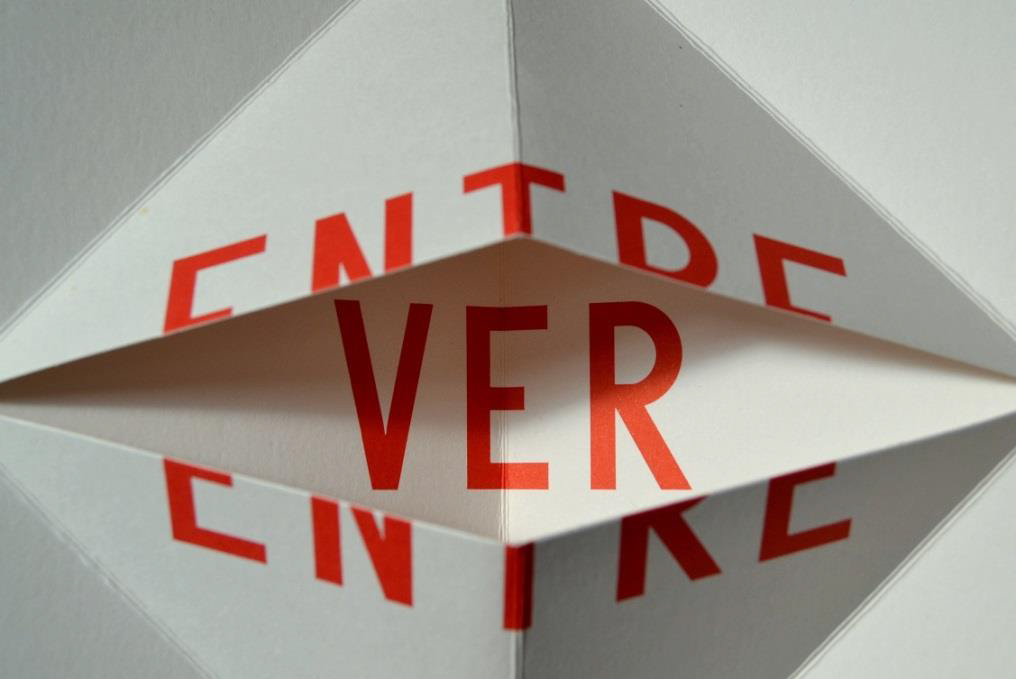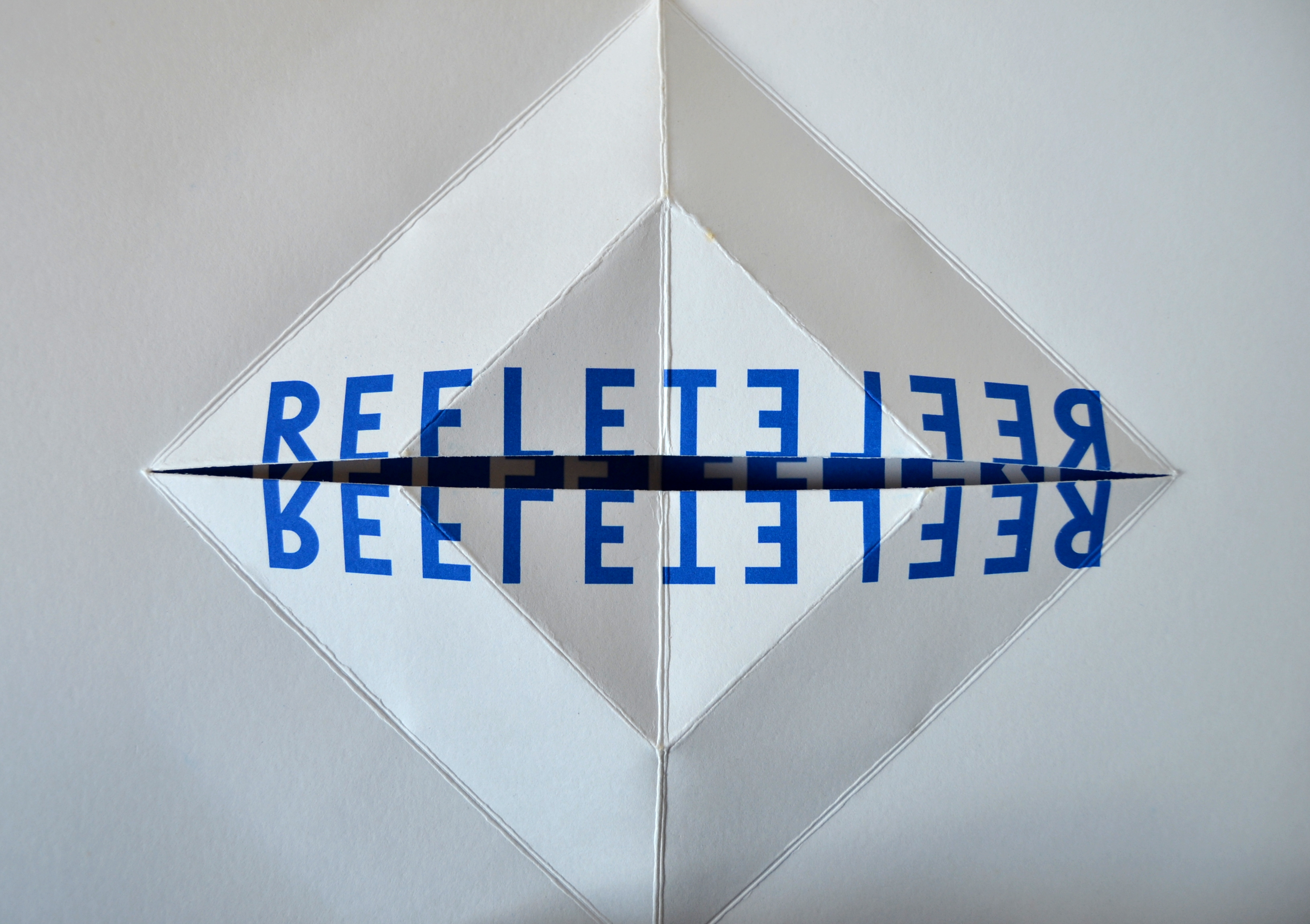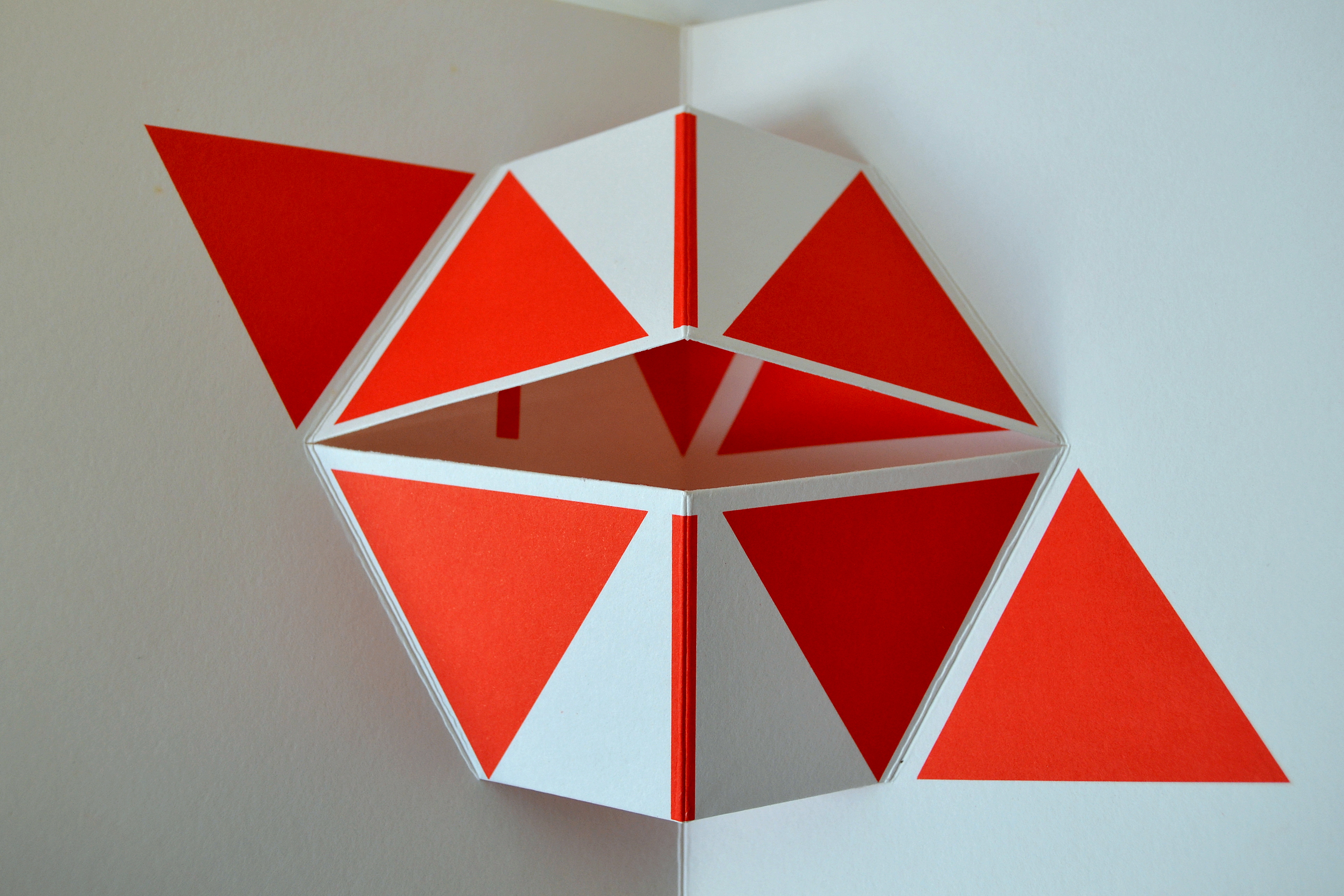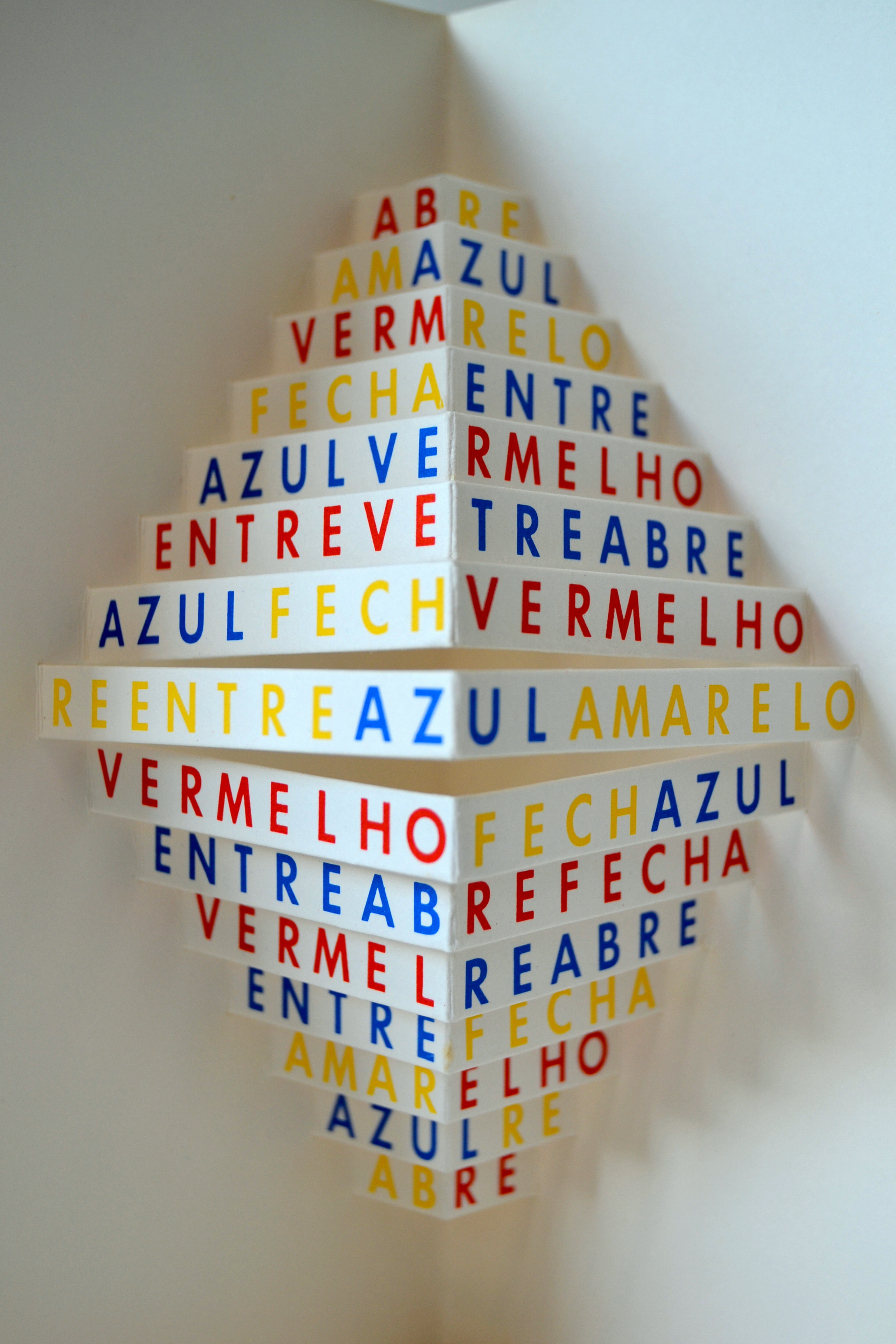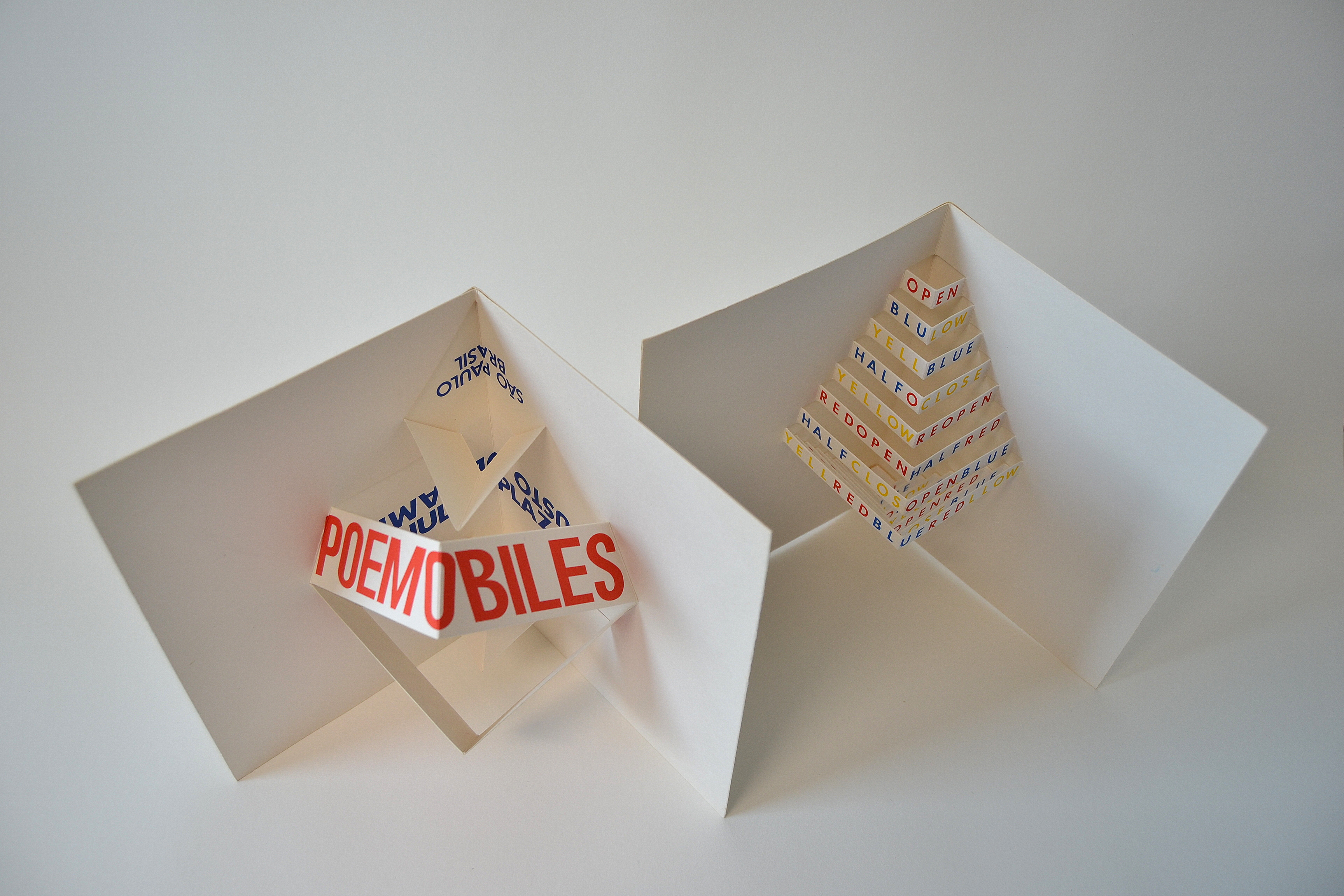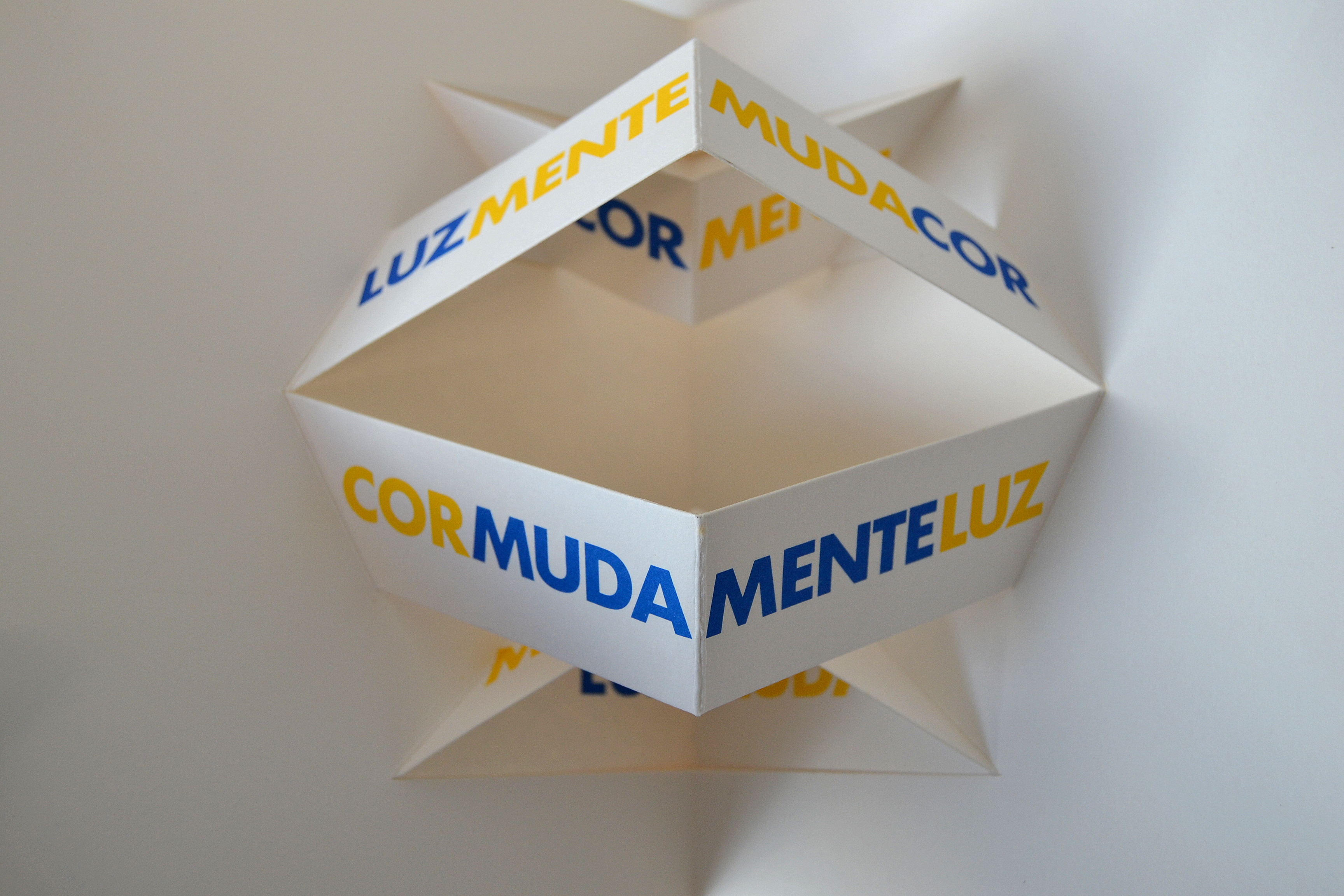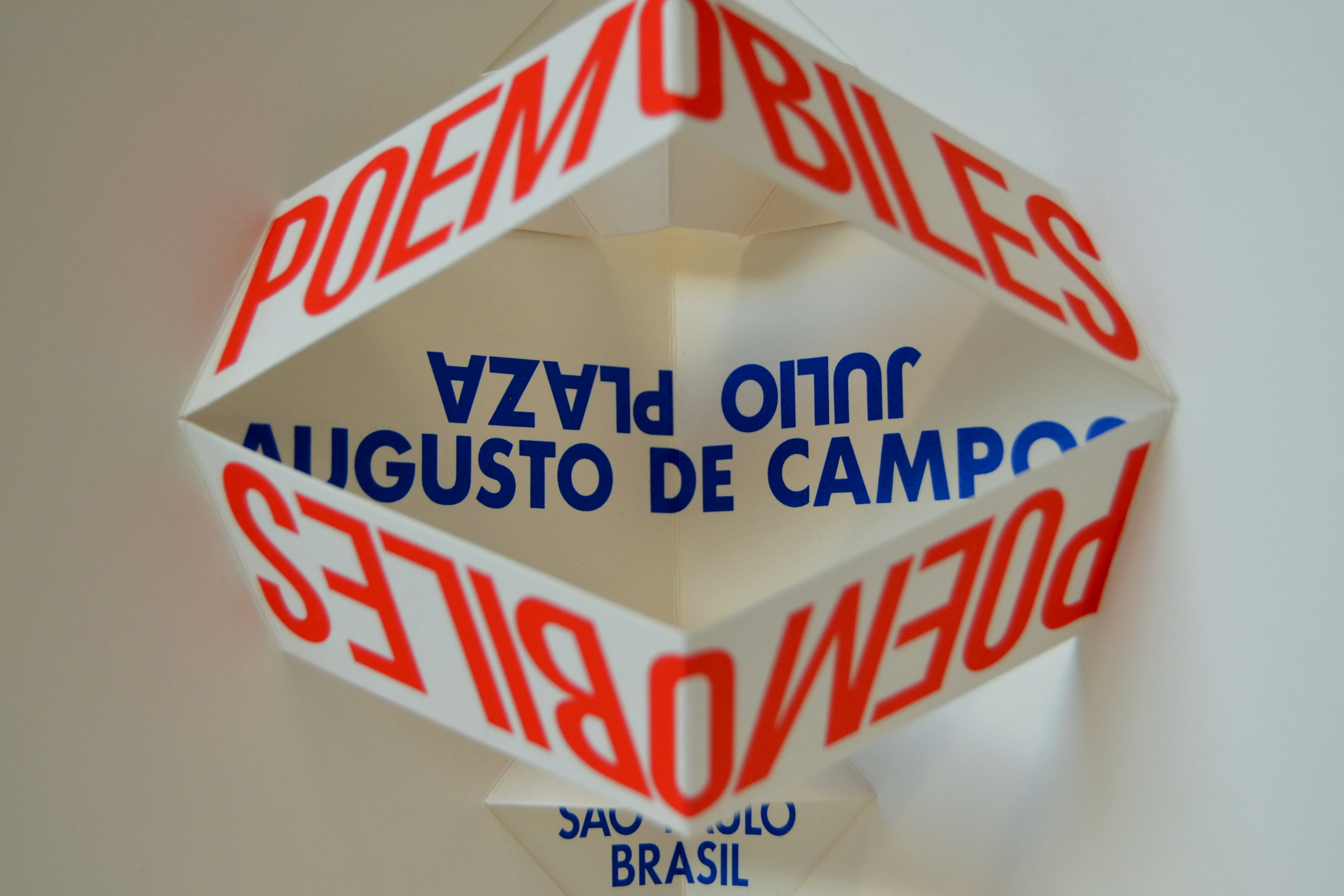The Centre of Latin American Studies is hosting a new exhibition and symposium:
A Token of Concrete Affection
Works from the personal collection of Stephen Bann relating to close exchanges between Cambridge and Brazilian poets in the 1960s.
The Private View will be held on 28 November 2014 from 5:00-7:00 pm the Centre of Latin American Studies.
The exhibition is open to the public on weekdays from 1 December 2014 to 1 March 2015. Viewing is by appointment only, please email Julie at jac46@cam.ac.uk to make an appointment.
About this exhibition
This show has been designed to mark the 50th Anniversary of the first international exhibition of concrete, kinetic and phonic poetry held in the Rushmore rooms, St Catharine’s College, Cambridge from 28 November to 5 December 1964, organised by Stephen Bann, Reg Gadney, Philip Steadman and Mike Weaver.
Among over ninety works shown at the week-long exhibition were poems sent from Brazil by Ronaldo Azeredo, Augusto de Campos, Haroldo de Campos, José Lino Grunewald and Décio Pignatari of the Noigandres group and from Edgard Braga, Luiz Angelo Pinto and Pedro Xisto.
Works by the Noigandres group and other Brazilian poets were included within the remarkable avant-garde journal FORM which Bann, Steadman and Weaver co-edited between 1966 and 1969 and in the Brighton Festival of Concrete Poetry which Bann curated in 1966. A half century after the first exhibition, the Centre of Latin American Studies has worked closely with Stephen Bann and curator Bronaċ Ferran on an exhibition of rarely seen material from Bann’s collection. The exhibition’s title is drawn from a letter written to Bann by Xisto in 1967 and on display in this show.
A symposium about 1960’s concrete poetry, its context and lineage will be held in association with Kettle’s Yard on Saturday 14 February 2015 from 11.30am-5pm at the Alison Richard Building. The programme will include presentations from Professor Stephen Bann, Dr Viviane Carvalho da Annunciação, Dr Greg Thomas, University of Edinburgh and Ann Noël Williams.
Related exhibitions in Cambridge:
Beauty and Revolution: The Poetry and Art of Ian Hamilton Finlay
Curated by Stephen Bann
Graphic Constellations: Visual poetry and the Properties of Space
Curated by Bronaċ Ferran and Will Hill
Concrete Poetry International Exchanges
Symposium
Hosted by the Centre of Latin American Studies
14 February 2015 11.30am – 5.00pm
Seminar Room, Ground Floor, Alison Richard Building, 7 West Road, Cambridge, CB3 9DT
To register for the symposium and for a programme click here.
The symposium will be followed by drinks reception & visit to the exhibition Beauty and Revolution. The Poetry and Art of Ian Hamilton Finlay curated by Stephen Bann at Kettle’s Yard.
This symposium explores the active cross-fertilisation, exchange of ideas and regular correspondence between poets and curators living internationally during the late 1950s and 1960s including Stephen Bann, Ian Hamilton Finlay, Edwin Morgan in the UK, Ernst Jandl in Austria and Brazilian poets such as Edgard Braga, Augusto and Haroldo de Campos and Pedro Xisto. Presentations from speakers Stephen Bann, Viviane C. da Annunciação, Vanessa Hannesschläger, Eduardo Kac, Drew Milne and Greg Thomas will contextualise these transnational exchanges in the light of broader developments internationally within literature and the visual arts of the period reflecting on networks and movements within concrete poetry, its critics and its lineage.
This event is part of a series of exhibitions in Cambridge coinciding with the 50th anniversary of the first international exhibition of concrete, kinetic and phonic poetry held in Cambridge in late 1964 including Beauty and Revolution. The Poetry and Art of Ian Hamilton Finlay, Kettle’s Yard, curated by Stephen Bann; a token of concrete affection, Centre of Latin American Studies, curated by Bronaċ Ferran and Graphic Constellations: Visual Poetry and the Properties of Space, The Ruskin Gallery, curated by Bronaċ Ferran and Will Hill.
Concrete Poetry – International Exchanges is supported by the AHRC Digital Transformations Theme Fellowship; Arts Council England Grants for the Arts; the Centre of Latin American Studies, University of Cambridge; Kettle’s Yard, Cambridge and Ludwig Boltzmann Institute for the History and Theory of Biography, Vienna.
